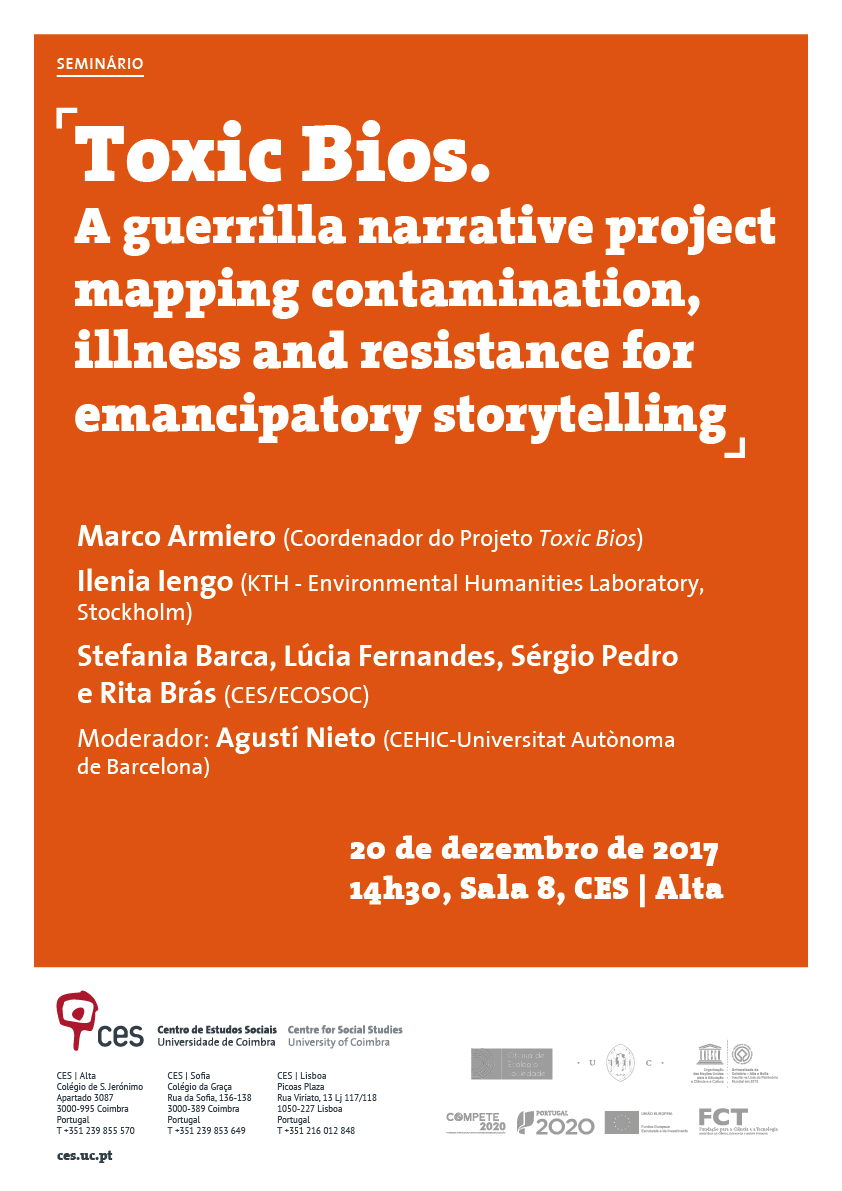Seminário
Toxic Bios. A guerrilla narrative project mapping contamination, illness and resistance for emancipatory storytelling
20 de dezembro de 2017, 14h30
Sala 2, CES | Alta
Resumo
Toxic Bios is a Public Environmental Humanities project based at the Environmental Humanities Laboratory of KTH (Royal Institute of Technology) in Stockholm, which coordinates local hubs in Portugal, Italy, Sweden, Greece, and Turkey. Building on Richard Newman’s Toxic Autobiography, and Stacy Alaimo’s transcorporeality concepts, connecting the body and environmental justice, Toxic Bios predicates on the assumption that we live in the age of the Wasteocene, an epoch deeply marked by the capitalist extraction of profits from the wasting of life (Armiero and De Angelis 2017). As corollary, while the Anthropocene implies to search for its traces in the geosphere, the Wasteocene must be searched into the organosphere because its traces have been accumulated into the tissues and cells of humans and more-than-human beings. “Guerrilla narrative” is the methodology we engineered throughout Toxic Bios, meaning with this expression a strategy aiming at occupying mainstream narratives with the counter-hegemonic storytelling of the embodied experiences of toxicity and wasting.
The project has an online platform www.toxicbios.eu where the Toxic Autobiographies generated by users are shown through a geo-referenced interface. To date Toxic Bios has built a network of collaboration among research centres, grassroots movements, journalists, think-tanks and culture professionals. CES’s Oficina de Ecologia e Sociedade (ECOSOC) has acted as the Portuguese hub of the project, collecting 12 toxic autobiographies, which are now openly accessible on the project’s platform. This seminar, open to CES researchers and doctoral students, will be an opportunity to present the project’s concepts and methodology, and discuss its early results.
Interventions:
Marco Armiero (project coordinator) and Ilenia Iengo (KTH - Environmental Humanities Laboratory, Stockholm); Stefania Barca, Lúcia Fernandes, Sérgio Pedro, and Rita Brás (CES/ECOSOC team);
Discussant: Agustí Nieto (CEHIC-Universitat Autònoma de Barcelona)
Organization: CES/Oficina de Ecologia e Sociedade and KTH (Stockholm)-Environmental Humanities Lab


